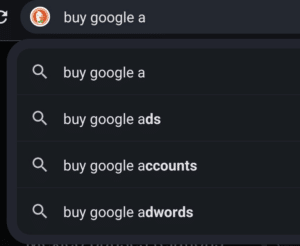The trust we place in online reviews guides much of our daily lives—what we buy, where we eat, even what doctors we choose. Yet, with the rise of AI-generated content, this trust is increasingly being manipulated. Companies, hired SEO firms, and malicious actors are leveraging advanced AI tools to flood platforms with fake reviews, and it’s becoming hard to tell what’s real from what’s fabricated.

As I worked on this article, I couldn’t help but think about how I’ve relied on reviews myself. How many of those glowing five-star ratings are genuine?
Maybe not all that many.
All that’s needed to create a fake-review-generating AI are many example reviews. Those are publicly accessible all over the internet. In fact, Amazon built it’s very own fake review machine last year, calling them “AI review summaries.” It is an LLM that generates item reviews after being trained on real customer reviews.
Consumer Trust for Sale
There are multiple interests involved in the fake review business. At the most direct level you have the companies that make the products that are being reviewed. They want good reviews so they sell more products. Then there are the marketing and SEO firms that work for those companies, they want to increase sales to please their clients and justify their budgets.
Let’s not forget the platforms themselves. In theory they have a vested interest in the quality of their reviews because more accurate reviews lead to customers purchasing things they really want, and that leads to happy customers. But let’s not kid ourselves: what they really care about are sales, and if positive fake reviews lead to more sales of an item that otherwise wouldn’t sell, they are probably not going to scrutinize too hard.
The platforms do take some action though. In 2023, Google reported eliminating over 150 million fake reviews and numerous accounts from various of its services.
On Black Markets
Then there are hackers and account farmers.
Wait, hackers?
Yes. All those fake reviews need to be left by real accounts, even if they aren’t real people. An easy way for the unscrupulous to get an account for fake reviews is to steal one. Hackers steal accounts on Google, EBay, or Amazon and sell them to marketers. They are assisted by the incompetence of the data-brokers, who insecurely store user data leading to massive leaks like the estimated 2.9 BILLION personal records recently taken from data firm National Public Data.

A step up from that are farmed accounts–accounts created with the intent of being “warmed up” and “aged” before being sold on for use as fake identities. Those sellers can easily be found through search.
Everything is Reviewed
It’s not only product reviews. Think about the impact on services like healthcare, financial advice, or legal firms. People rely on online feedback to make critical decisions, and the infiltration of fake reviews can have serious consequences. A well-reviewed but faulty device could lead to a waste of money or worse, injury.
As these AI tools become more sophisticated, the line between real and fake blurs even further. It’s a game of cat and mouse between the creators of fake reviews and the platforms trying to stop them. And as consumers, we’re caught in the middle, trying to discern truth from fabrication.
And this topic is just the tip of the iceberg when it comes to the ways AI is blurring lines and making cybercrime easier.
Keep Your Wits and Question Things
So, what can we do about it? For starters, we need to approach reviews with a healthy dose of skepticism. Look for patterns—are there multiple reviews that seem to echo the same phrases? Are they overly enthusiastic without much detail? These could be red flags. Also, consider cross-referencing reviews from multiple platforms. If a product has glowing reviews on one site but mixed feedback elsewhere, something might be off.
As I was researching this, I couldn’t help but reflect on my own habits. I’m a stickler for reading reviews—whether it’s for a restaurant, a book, or even a pair of shoes. The convenience of online shopping and decision-making comes with its own set of risks, and we need to be informed participants in this ecosystem. I’m definitely going to be more cautious moving forward—and I hope you will be too.







